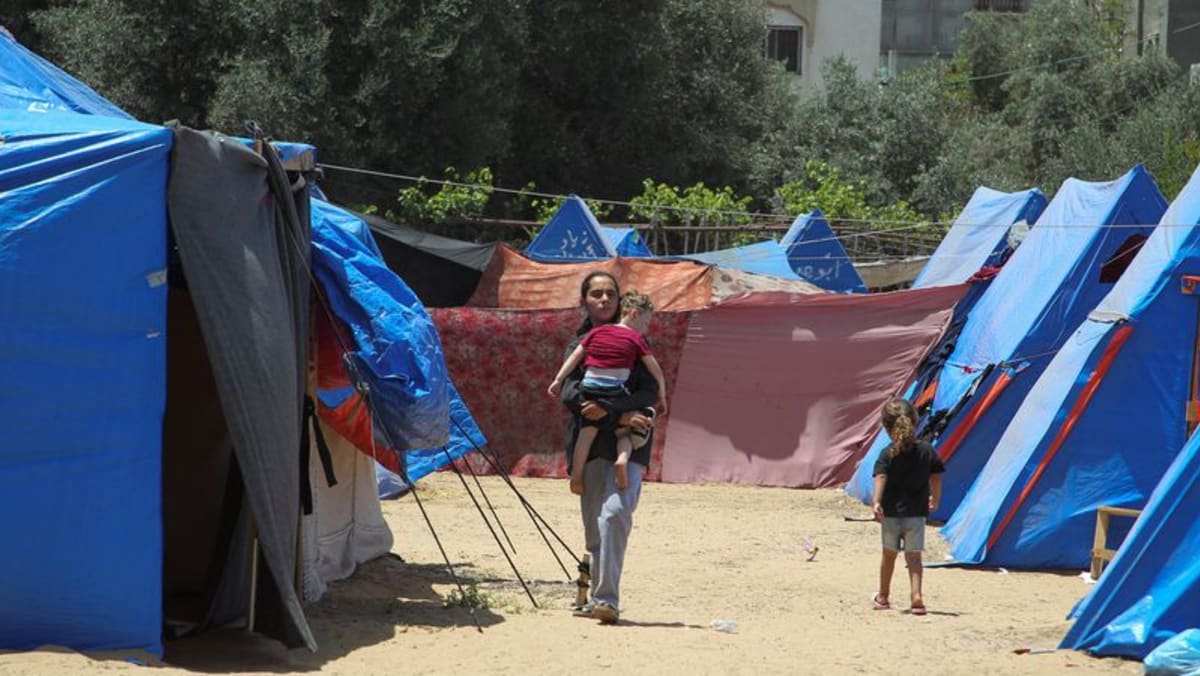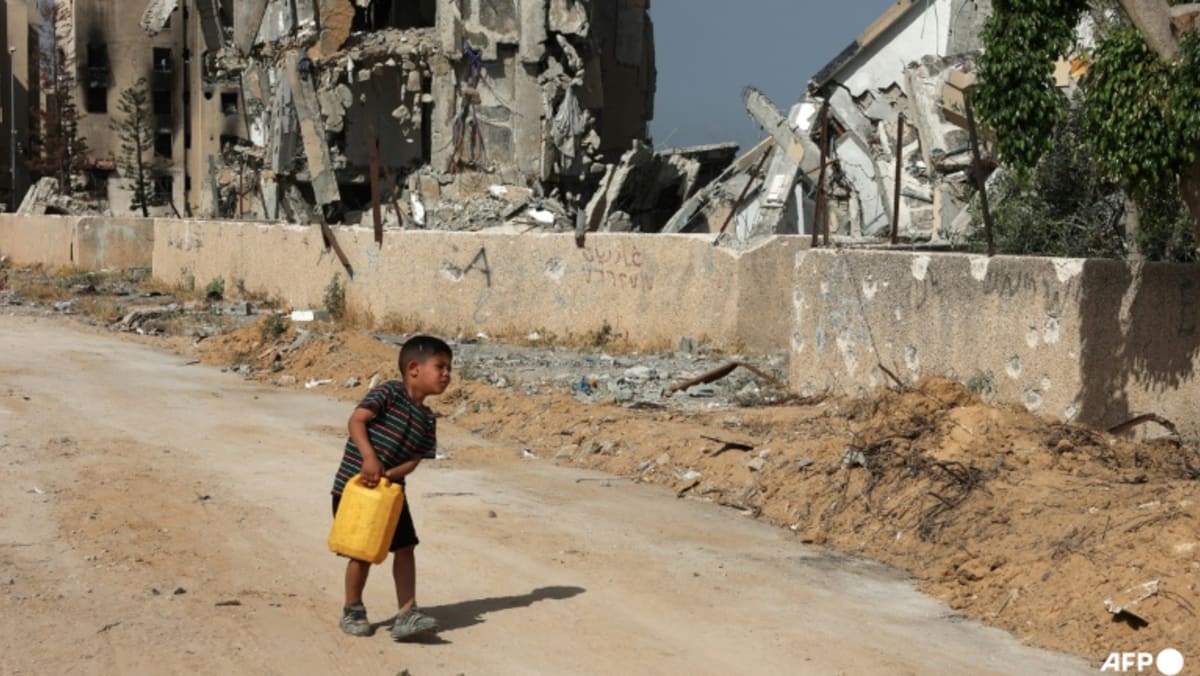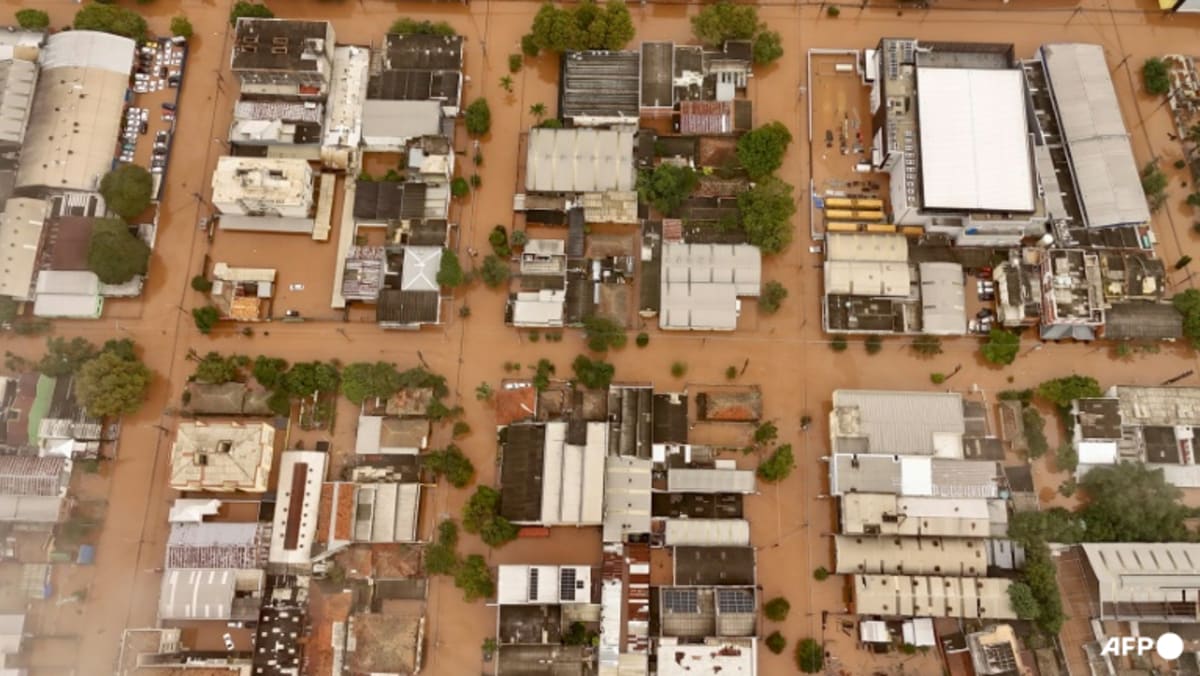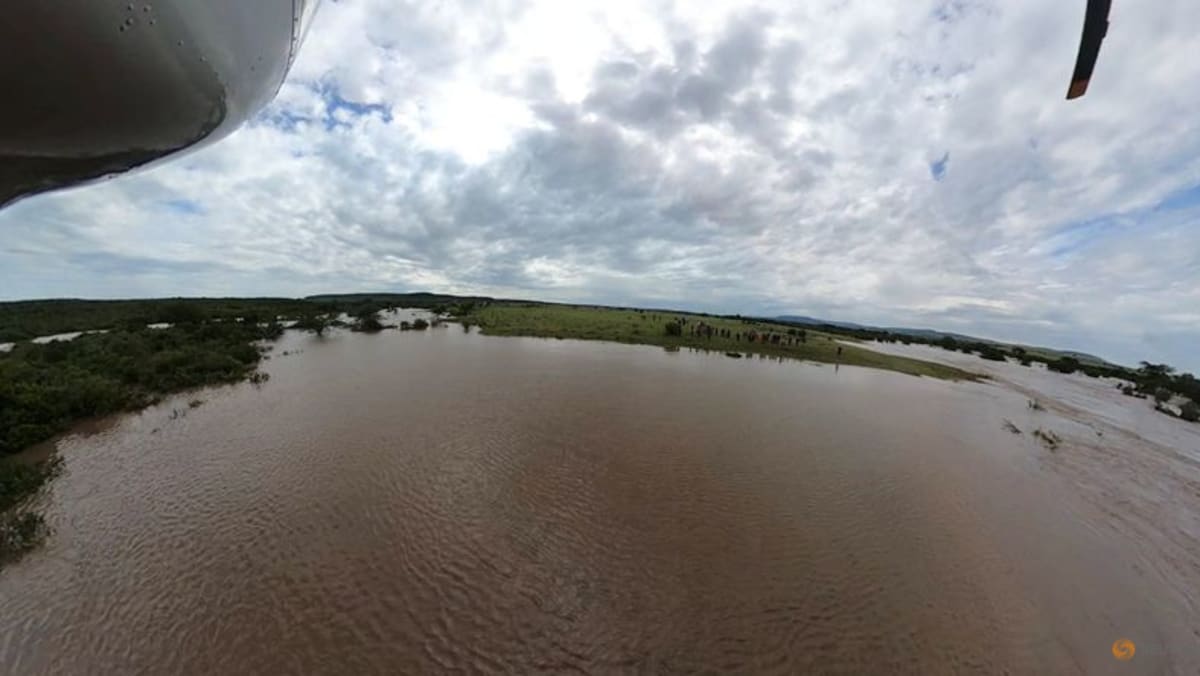KYIV: Ukrainian Hanna Bondar had expected that a new mobilisation law, aimed at replenishing her country’s exhausted troops after more than two years of war, would finally allow her husband to return home.
Her hopes were dashed last week, however, when the Bill that was ultimately passed in parliament did not specify a time limit for when soldiers can be released from active service.
Ukrainian troops are vastly outnumbered by Russian forces, meaning that those who have been fighting since the full-scale invasion broke out in February 2022 may have to remain on the battlefield.
Ms Bondar’s husband is one such soldier. While he served on the frontlines, she joined protests calling for his demobilisation.
“Twenty-four months on the frontlines is really hard. They don’t have any changes, any rotations,” she told CNA during one such protest, brandishing a placard that said the best motivation was to know the terms of demobilisation.
MONTHS OF DEBATE ON THE LAW
The mobilisation Bill was signed into law by Ukraine President Volodymyr Zelenskyy on Apr 16, after it passed with a majority 283 votes in parliament. It will come into force a month after that.
More than 4,000 revisions were made during months of debate on the law. Before the vote took place, Ukrainian General Yuriy Sodol gave lawmakers a sobering report: There were seven times more Russian soldiers than Ukrainian ones on the eastern frontlines.
The new law completely scraps service limits and will require men aged 18 to 60 to update their information with military authorities, so those who are eligible can be called up at any time.
Ukrainian men living abroad may be denied certain consular services if they fail to do so. Those evading conscription will now face a fine as well.
As the war rages on, motivation has waned as tens of thousands are killed or injured. Without clear terms for demobilisation in the new law, the prospect of being called up has also become more daunting.
A clause that would have allowed troops to leave after 36 months of combat was dropped from the Bill in the eleventh hour, after pressure from Ukrainian commanders.
Mr Vadym Yaschenko, a 20-year Ukrainian who lives in the capital Kyiv, was among those who expressed his concerns.
“It is important to have a time period in order to understand what deadline you need to meet, and what the rotation will be. That would make things a little easier,” he said.
Experts say demobilisation should be decided once new reserves are determined. United States officials have warned that the possibility of Ukraine’s army collapsing cannot be ruled out, given dire shortages of ammunition.
Mr Mykhailo Samus, director of independent platform New Geopolitics Research Network, said the commander-in-chief of the Armed Forces of Ukraine will have information on all the possible reserves.
“It means that until the end of the year, it will be possible to say, we have for example, 2 million men, so let’s do it like this – we mobilise 200,000, and demobilise 200,000,” he elaborated.
 Ukrainian Hanna Bondar, pictured with her soldier husband and two children.
Ukrainian Hanna Bondar, pictured with her soldier husband and two children.
The coming months will be crucial for Ukraine, with Russian forces expected to mount a major offensive in the late spring or summer.
For those like Ms Bondar, they will have to continue their painful wait for their loved ones to return home.
“I can’t say it without tears. For me, it was kind of like, really hard to realise that now I’m alone without him, he is somewhere on the frontlines,” she added.












 English (US) ·
English (US) ·  Turkish (TR) ·
Turkish (TR) ·